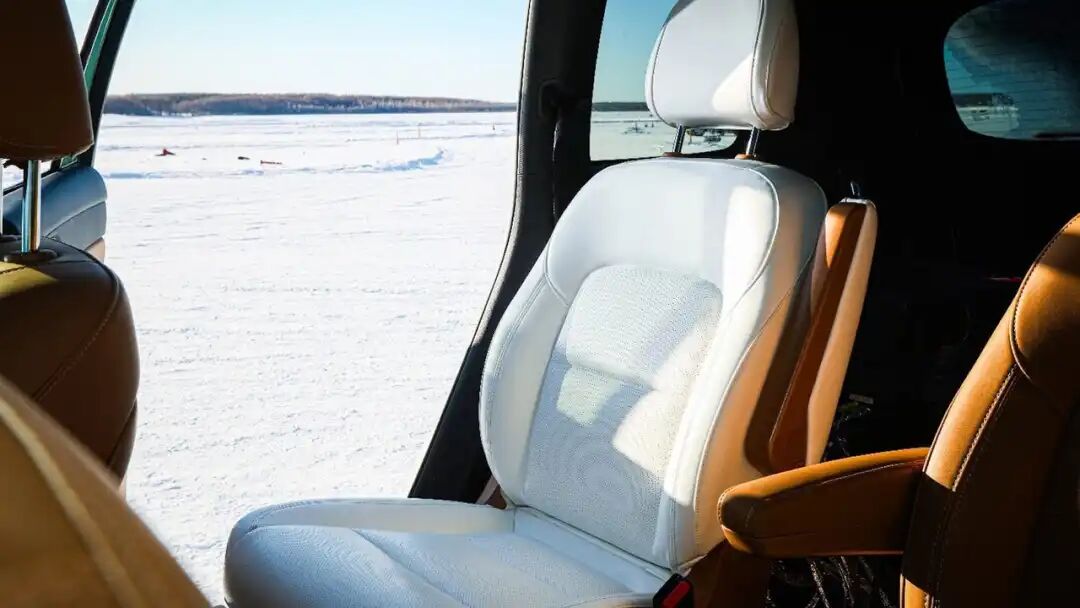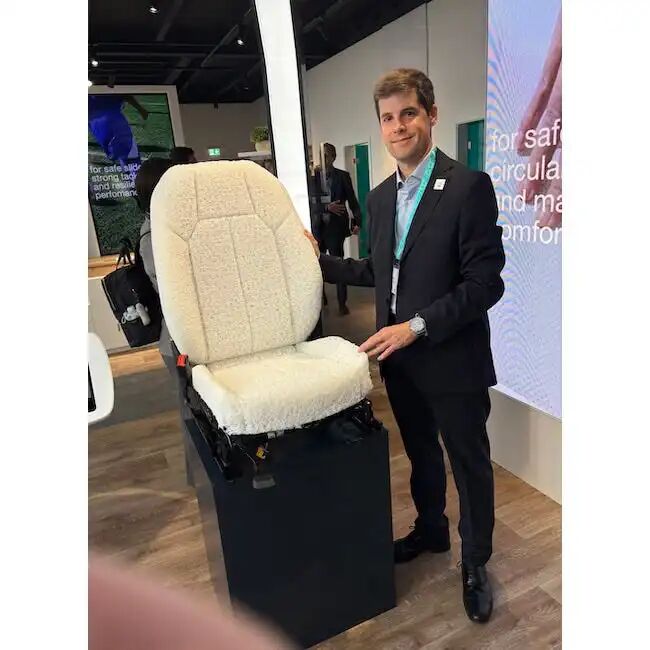Polyolefin Car Seats Enhance Recyclability

At the recent K 2025 trade fair in Düsseldorf, Germany, the recyclability of automotive seats received a significant and timely boost, with Dow announcing an innovative polyolefin-based cushioning material solution. Another innovation, also using polyolefin-based leather substitute resin, is targeting the automotive seat market.
The Catalyst for the Circular Economy
Infinair Polymers, used for 3D Loop technology, is known as "the end-of-life mechanical recycling solution for achieving the recycling of seat cushions." This cushioning material, based on polyolefin elastomers, is composed of a three-dimensional mesh of melt-blown filaments, forming thousands of bonding loops through a melt extrusion and water-cooling process. The process was originally developed for mattresses, including washable pet mattresses.

David López, the Director of R&D and Technical Sales/Services for Dow Packaging and Specialty Plastics, stated at the exhibition, "Infinair POE combines flexibility and resilience." Dow is collaborating with its Tier 1 supplier Lear Corporation to commercialize this technology on a pilot production line in Texas; its first market application is in a modern luxury vehicle. López pointed out, "A key to the successful deployment of Infinair is the POE formulation, which provides both flexibility and rebound capability."
Lear markets this technology under the name FlexAir as a sustainable alternative to traditional polyurethane foam, aimed at aligning with automotive manufacturers' sustainability initiatives. Its claimed advantages include:
-
Compared to traditional PU foam, carbon dioxide emissions are reduced by up to 50%. -
Combine Lear's proprietary fastener design to achieve 100% recyclability of the entire seat assembly. -
Compared to traditional PU foam, the weight is reduced by up to 20%. -
100% breathable material. -
Antibacterial and low VOC product characteristics. -
Improve comfort performance.
Leather alternatives
The second item that can be widely applied in the development of automotive interiors (including seats) is Evoair POE Leather, a POE material that is claimed to offer high performance along with a range of design and safety advantages. This material is 25% to 40% lighter than PVC leather, features low VOCs/low odor characteristics, and is non-animal sourced. Additionally, it is reported to provide a smooth and soft surface texture, color stability, and weather resistance. The initial applications of this material include airbag covers jointly developed with Lifetec.
【Copyright and Disclaimer】The above information is collected and organized by PlastMatch. The copyright belongs to the original author. This article is reprinted for the purpose of providing more information, and it does not imply that PlastMatch endorses the views expressed in the article or guarantees its accuracy. If there are any errors in the source attribution or if your legitimate rights have been infringed, please contact us, and we will promptly correct or remove the content. If other media, websites, or individuals use the aforementioned content, they must clearly indicate the original source and origin of the work and assume legal responsibility on their own.
Most Popular
-

India's Q3 Smartphone Shipments Rise 3%; Japanese Mold Factory Closures Surge; Mercedes-Benz Cuts 4,000 Jobs
-

Ascend's Restructuring Plan Approved! Jwell Launches Global Acceleration Plan; Nexperia Chip Crisis Threatens Global Auto Production
-

Dow To Restart Pe Units 5 And 7 This Week, Recovery Date For Unit 6 Remains Undetermined In The United States (US)
-

Key Players: The 10 Most Critical Publicly Listed Companies in Solid-State Battery Raw Materials
-

The Roller-Coaster Behind Sanhua Intelligent Controls' Stock Price: What Are the Advantages of Automotive Thermal Management Companies Crossing Into Humanoid Robots?






